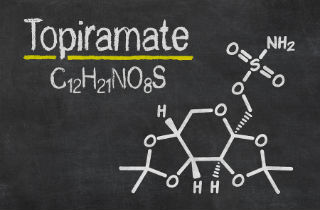Neurology researchers are looking into how to switch off the intense cravings that triggers addiction. They are doing this by tweaking the reward pathways that reinforce addictive patterns, thus reinforcing growing medical evidence that addiction is NOT moral weakness, but rather, that addiction is brain dependent.
Basic addiction neurology 101
Addicts have different types of brains. The dopamine-producing neurons and circuits are hard wired out of balance in alcoholics and addicts. This imbalance creates a “reward pathway” in their physical minds. Neurons fire at incredibly high speeds, and reinforce the effects of alcohol or drugs. Medications are currently being explored that would slow down this rate of neuron activity.
New findings
Researchers are excited about the new use of an epileptic medication called “topiramate“, which works to indirectly influence dopamine receptors in the brain. Positive results of the study involving 371 alcoholics include reduced amounts of drinking, BMI (body mass index), cholesterol, sleeping disorders and obsessive thoughts. The findings of this UVA addiction study are one of a few reported in the September/October BrainWork newsletter from The Dana Foundation, a non-profit organization interested in educating the public about brain science. (I recommend that you sign up for BrainWork…good bathroom reading.)
Just one problem
However, the researchers aim to manage alcohol intake, instead of advocating for total abstinence. This goal begs the question: If cravings can be managed, is it possible to train a former alcoholic to act as a regular drinker? And isn’t this option to live as a drinker just what Bill W. and our friends at A.A. balk at, the middle-of-the-road solution? Do such medications solve the problem of choice and willpower? Is topiramate a sufficient solution for the devastation caused by alcoholism, or is the medication compromising the process of recovery?
The fact is that most alcoholic, for reasons yet obscure, have lost the power of choice in drink. Our so-called willpower becomes practically non-existent. We are unable, at certain times, to bring into our consciousness with sufficient force the memory of the suffering and humiliation of even a week or a month ago. We are without defense against the first drink. – The Big Book of Alcoholics Anonymous, page 24
I’m not sure what the answers are to these questions, but I can attest to the fact that my life is enhanced immeasurably without the presence of substances. I trust myself. I take responsibility for each action I take. I make mistakes. I apologize. And I believe that this way of life, taught to me via the 12 Steps, will not be taught to alcoholics who are prescribe topiramate.
What do you think? Is managed alcoholism still alcoholism? Will these medical strides improve the quality of life for a segment of the addicted population? Should we be seeking such treatments at all or should we be walking a straight line that requires addicts choose between intoxication or sobriety?









Related Posts